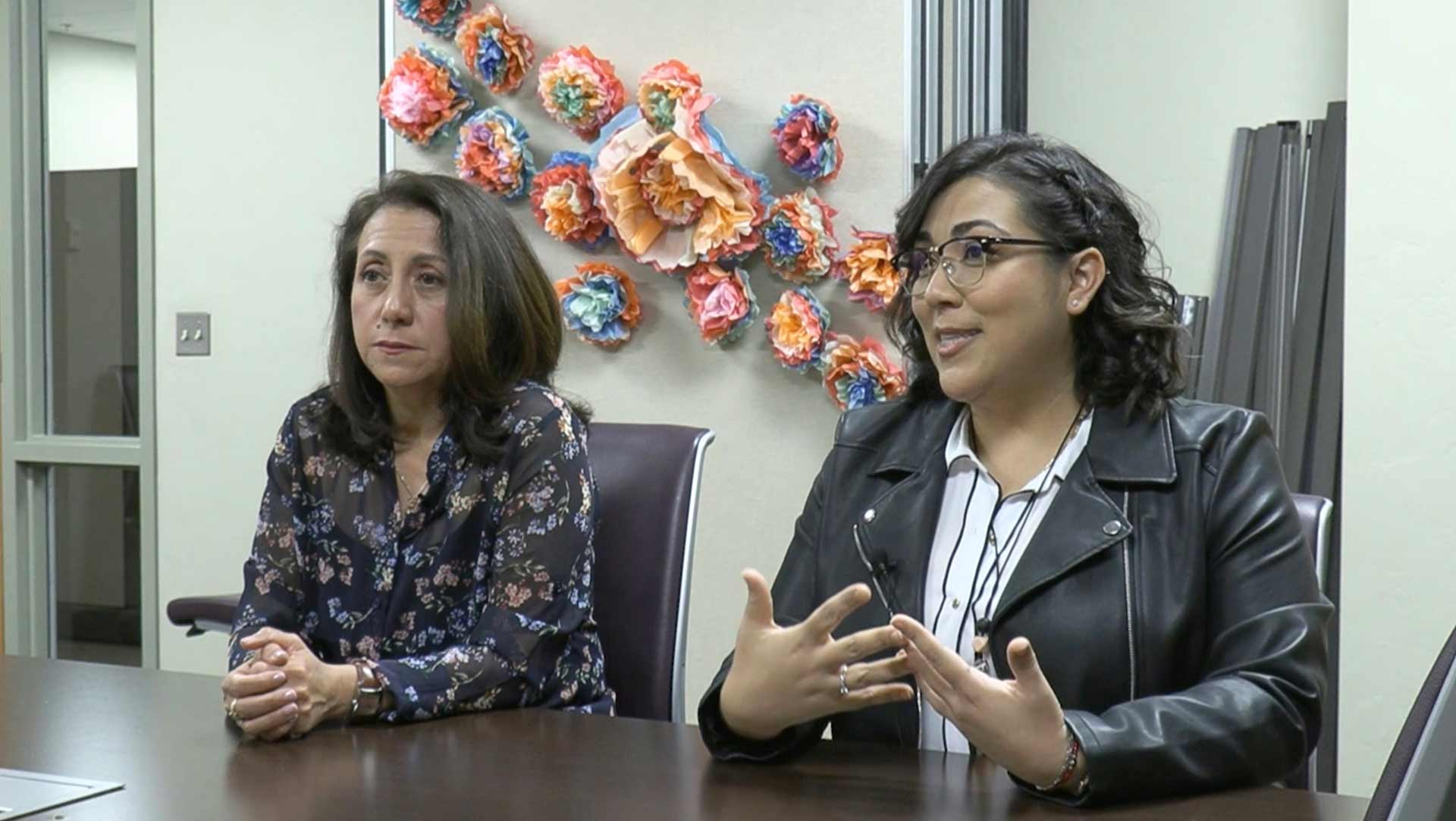 Rosi Vogel, left, and Adriana Maldonado work with the Nosotros program, which offers free fibro scans to help people identify liver disease.
Rosi Vogel, left, and Adriana Maldonado work with the Nosotros program, which offers free fibro scans to help people identify liver disease.
Liver disease disproportionately affects the Hispanic community, and in Tucson, a local program is taking action to fight this trend. The program is working to identify liver disease cases and promote healthy habits that prevent other health issues.
According to the University of Arizona’s Mel & Enid Zuckerman College of Public Health, the Nosotros Comprometidos a Su Salud public health program helps underserved Hispanic communities that don’t have the resources to navigate health disparities.
The program, founded in 2014, encourages healthy habits, including weight loss, smoking cessation, and awareness of substance abuse. The program has had projects funded by grants from the Univesity of Arizona, the National Institutes of Health, the American Cancer Society, and the Community Foundation for Southern Arizona.
David Garcia, the program’s director and an assistant professor at the university, said the program is beneficial to the Hispanic community, especially the free liver scans offered to anyone who may need one. The noninvasive fibroscan assesses an individual’s levels of steatosis and fibrosis, which can be key indicators of liver disease.
“So we take the machines basically to the community members to tell them about their amounts of liver disease,” Garcia said.
A 2022 Nosotros report indicated about 25% of Americans are affected by non-alcoholic fatty liver disease (NAFLD), which can lead to other diseases. Of the 693 fibroscans conducted in southern Arizona by the Nosotros program from October 2021 to the end of 2022, 423 of them, or 40.3%, showed signs of fatty liver disease. At least 80% of those scanned identified as Hispanic or Latino.
More than 79% of the people scanned were overweight or obese – a problem especially prevalent for Hispanic men, Garcia said – which puts them at higher risk of getting NAFLD.
“If you look at the rates, it’s basically 33% compared to about 18% in non-Hispanic Blacks and 20% in non-Hispanic whites,” Garcia said of those in the study who had NAFLD.
“If there are no signs of fibrosis, then changes to health behaviors are key. If there is some evidence of more advanced disease, then we recommend following up with a hepatologist,” Garcia said.
The Nosotros program is staffed by people in the community trying to make a difference.
“The nice thing about being in the community is that you get to meet these people, and every person has a story to tell you,” said Rosi Vogel, a senior program coordinator at Nosotros.
Adriana Maldonado, who also works with the Nosotros program and is a postdoctoral research associate at the UA Department of Health Promotion Sciences, echoed the sentiment: “So that’s one of the biggest things that a community-engaged researcher … we’re experiencing here in Nosotros: being there and building that trust.”
Those who want a free fibroscan can call 520-282-2785. During the visit, participants complete a short questionnaire, get their liver scanned, and receive information about additional resources.

By submitting your comments, you hereby give AZPM the right to post your comments and potentially use them in any other form of media operated by this institution.